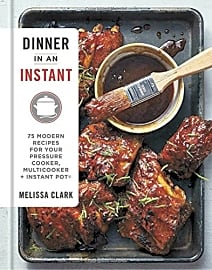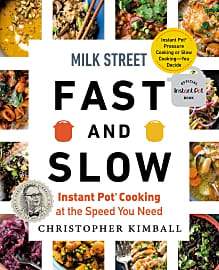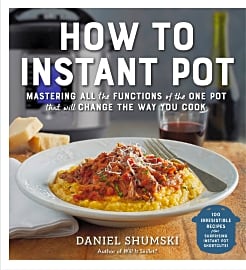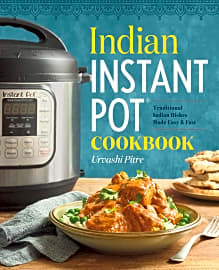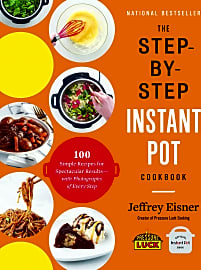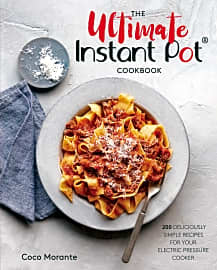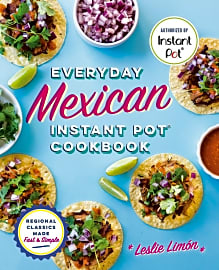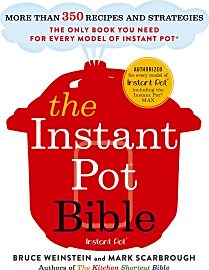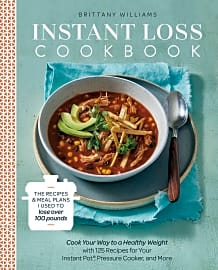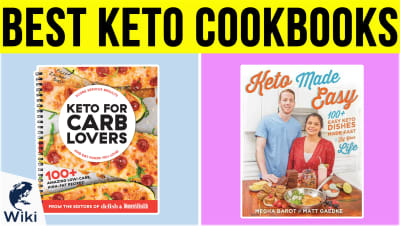The 10 Best Instant Pot Cookbooks

This wiki has been updated 34 times since it was first published in December of 2017. If you're convinced that "quick," "easy," and "delicious" can never go together, then you'll eat your words — and a whole lot more — once you thumb through these Instant Pot cookbooks. The recipes are simple to follow and can be made with just the company's most basic pressure cooker. Your family will be wowed by your culinary skills — and they don't need to know how effortless it all was. When users buy our independently chosen editorial choices, we may earn commissions to help fund the Wiki.
Editor's Notes
November 23, 2020:
Instant pots are enjoying a boost in popularity right now as more people are cooking at home, and the cookbook industry is keeping pace with a bevy of interesting new offerings. We've added three during this update, starting with Christopher Kimball's Milk Street Fast and Slow. With two options for each recipe, it's perfect for people who need quick meals on weeknights, but who also like to take their time on weekends with all-day simmers.
Step-by-Step Pressure Luck gives you a simple, streamlined collection of 100 recipes that have pictures every step of the way. For taco lovers who want to branch out, Everyday Mexican provides a flavorful tour of the Latin American country's cuisine.
We removed a few older publications that have lost their pizzazz, including In Obsession: Cooking Everything Fast and Paleo Cooking. I Love My Instant Pot has also been removed because some readers found its recipes a little hard to follow. Finally, we've updated the information for several items, including Instant Loss, Traditional Indian, and The Only Book You Need.
January 15, 2019:
Most people buy an Instant Pot to make their life easier in the kitchen. They want to be able to make dishes that don't require a lot of prep or clean up time, yet still offer the complexity and taste of meals prepared in the traditional manner. With that in mind, we selected cookbooks that serve those needs. Of course, that doesn't mean you won't find some seriously sophisticated recipes in them that will blow the minds of friends and family members alike.
Under Pressure
More than just supplying ingredient lists and recipes, they'll tell you exactly which settings to use and for how long.
Cooking has long been the domain of the patient and well-practiced. Conjuring up healthy, hearty dishes requires a perfect storm of flawlessly implemented tasks. First, there's careful meal planning. Next, the accumulation of fresh ingredients, lovingly selected to cater to the palates and moods of your friends and family. Then, there's prep, which takes some serious organizational skills and can include peeling, cutting, seasoning, and more. And finally, the execution, which requires meticulous time management, knowledge of the necessary utensils, and a familiarity with food science. The entire process is at best, intimidating, and at worst, terrifying. It's no wonder that many of the cooking-challenged resort to eating stovetop noodles every day.
That's where the Instant Pot comes in. These supercharged pressure cookers not only make delicious meals at lightning speed, but they take a lot of guesswork out of the mix, too. In addition to pressure cooking, which simulates the effects of long braising, you can use them to steam vegetables, sauté proteins, make rice, and slow cook soups. Despite not having a bake mode, you can even proof and bake fluffy bread. Instant Pots achieve all this thanks to their numerous settings and modes, which you can activate with the push of a button.
It sounds like a lot, but the right Instant Pot cookbook will walk you through everything, step by step. More than just supplying ingredient lists and recipes, they'll tell you exactly which settings to use and for how long. Many of these cookbooks will also explain how an Instant Pot works and provide tips and tricks to streamline the cooking process.
The Hallmarks Of A Good Cookbook
How you choose the best cookbook for yourself will depend on your personal tastes, budget, and diet, but regardless of your selection, there are a few key things every cookbook needs to get right.
To start, they need to be well organized. Even if the recipes are mind-blowing, it's going to get frustrating fast if you're constantly finding desserts in the appetizer section, or meat-based dishes in a vegetarian chapter. The best cookbooks feature clear layouts with intuitive food groupings. They'll use large headings and subheadings, photos of completed dishes, helpful tables, and bold text. You can also expect a comprehensive glossary, so you can understand cooking-specific terms without having to look them up.
They need to be versatile. An authoritative cookbook will not only have hundreds of recipes boiled down to uncomplicated terms, but they should provide variations on them. In the event that you're allergic to an ingredient or simply don't have it on hand, these books need to present substitutions for you to try instead. On top of that, they've got to be well-rounded. Even if you're getting a niche cookbook that focuses on a specific theme like the keto diet, it should still include everything from vegetarian options and nutritious bakes to decadent desserts, stocks, and soups.
Instant Pot cookbooks, in particular, need to school you on all things related to the machine. Even if you still have your product manual, it's always helpful to get a crash course on how an Instant Pot operates. Your cookbook should explain the basics on how to use one, when and how to clean it, what each function is capable of, and more. Further to that, they'll cover common pitfalls and mistakes to avoid. You should expect low-maintenance recipe guidelines that detail pressure levels and cooking times. If the cookbook you're considering has these features, it's likely a winner.
Cookbooks Through The Ages
Long before Julia Child or Martha Stewart came to be, humans were setting down recipes and passing them along to each other. Nearly every society participated, from ancient China and the Arabic world to Rome and Greece. Ancient gourmands didn't always write their cookbooks like we do today, preferring to employ dialogues and poems on occasion instead. And if you read Cookery and Dining in Imperial Rome — an old tome penned in the 4th century — you'd find out how to get around pesky inconveniences like the lack of refrigeration and how to disguise the flavor of stale bird meat.
Writers from the medieval period often penned cookbooks in a folksy manner that seems vague to us today, but would have made a lot of sense back then. For example, one collection from 16th century England advises chefs to "heat water until it was a little hotter than milk that comes from a cow." You could also find books like The Forme of Cury, an extensive collection of 14th-century English recipes written by the chief master cooks of King Richard II. It contains over 200 recipes that use rare and valuable spices of the time like nutmeg and cardamom. Since lavish banquets were the ultimate medieval status symbol (after owning a bed, of course), it's no surprise that royal chefs would use extravagant ingredients.
With the advent of the printing press, it was much easier to publish books on any subject, including how to manage a household and prepare food. In places like England and Holland, noble families were in fierce competition over who could throw the most sumptuous banquets, increasing the demand for top-notch instruction. By the middle of the 1600s, cookery had become an art form, and many in-demand chefs published their own recipe books. It would take another 200 years for a cookbook to be penned with the domestic reader in mind. Modern Cookery for Private Families, written by Eliza Acton in 1845, established the modern format that we still use today, such as listing ingredients and suggested cooking times alongside each recipe.
The 1920s saw the birth of the fictional character Betty Crocker in America, dreamed up by General Mills to respond to baking questions sent in by customers. Betty became well known over the ensuing decades. She solidified her place in the annals of cooking history with the publication of Betty Crocker's Picture Cook Book in 1950. It was a massive hit, and since then, cookbooks have evolved to encompass almost every type of cuisine and diet you could imagine, from gluten-free and paleo versions to Star Trek and Star Wars-themed varieties.


